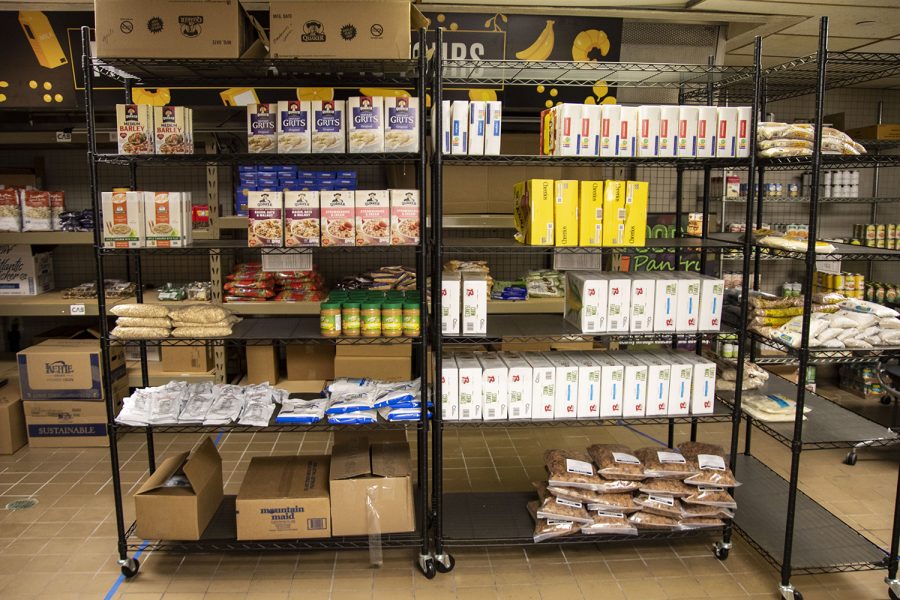Opinion | We need to address food waste and insecurity
The pandemic has caused significant increases in food insecurity, and we need to do our part in reducing food waste and addressing this issue.
Some of the many food items that line shelves, on Friday, Jan 22, 2021. The food pantry not only helps with food but personal items as well.
July 14, 2021
College campuses are hotspots for food waste, and this issue needs to be addressed now more than ever.
The pandemic has taken a toll on Americans in more than one way, including catalyzing rises in food insecurity. Food insecurity refers to having a continuous lack of access to enough food to sustain a healthy and active lifestyle.
Having access to food is a major social determinant of health. As a social determinant of health, food insecurity has one of the largest impacts. Lack of access to food can contribute to a slew of negative outcomes, including chronic disease, high blood pressure, and an overall lack of wellbeing.
Additionally, food insecurity can gravely affect people’s mental health. A recent study showed that food insecurity caused by the pandemic correlates with 257 percent higher risks of anxiety and 253 percent higher risks of depression.
With the increases in food insecurity and the devastating effects this has on people’s health, we need to assess how to reduce our food waste. Food waste refers to food that is not consumed for various reasons.
Although different, food waste and food insecurity are tied to each other. Reducing food waste ensures there is more food for more populations.
College students are not immune to struggles with food insecurity. A study taken in 2019 showed 45 percent of students surveyed have experienced food insecurity. Presumably, these numbers have only worsened with the pandemic. Amid the pandemic, over 50 million people have dealt with food insecurity, which increased from 35 million in 2019.
Further, one in six Iowans and one in five Iowa children struggle with food insecurity. These numbers are not expected to decrease for possibly another year or two. With so many Iowans experiencing a lack of access to food, we should all be addressing food waste.
Summer only exacerbates problems with food insecurity for many families, since they cannot rely on school to feed their children. The Johnson County Food Bank has seen increases in demand and needs support to bring the community what they need.
College campuses have found to, on average, account for 169,000 pounds of food waste every year. A study examining food waste on college campuses suggested a major way to reduce food waste may be to reduce the abundance of food options in dining halls.
The University of Iowa offers a variety of meal options including Flex meals, marketplace meals, and hawk dollars. Marketplace meals are used at the dining halls whereas Flex meals are used at various campus retail locations. Many students go to the marketplaces to get non-perishable items like chips, sodas, cookies.
At the end of the year, instead of filling up the dumpsters with uneaten Flex meals, consider donating food to the Johnson County Food Bank or Food Pantry at Iowa.
Places on campus like The Food Pantry, located in the Iowa Memorial Union, work hard to address the needs of students and staff on campus. There are numerous opportunities at the university and in the community to make food donations, if you are at a position where you can.
There are other initiatives like Hawkeye Meal Share allows students to donate unused meal swipes to other undergraduate, graduate, or professional students. If students need assistance, you can request help through Hawkeye Meal share, as well.
It’s easy to forget and discount people’s struggles when they are unfamiliar to us, but many Iowans are struggling with food insecurity. College campuses need to be more aware of food waste and take steps to address it.
Columns reflect the opinions of the authors and are not necessarily those of the Editorial Board, The Daily Iowan, or other organizations in which the author may be involved.



